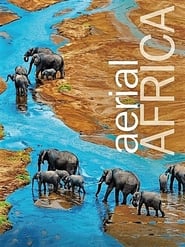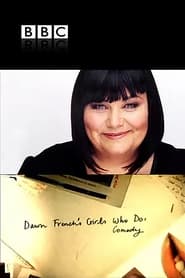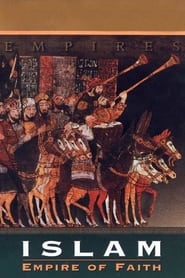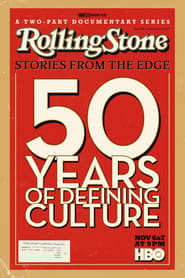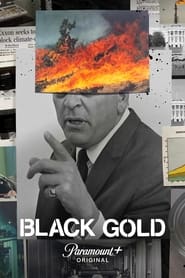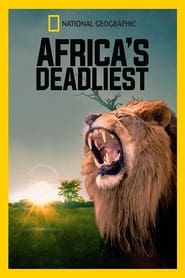Popular Documentary TV Series - Page 302
-
Aerial Africa
2018
Aerial Africa
2018
star 9Aerial Africa reveals the fascinating stories you'd never find if you weren't in the air. -
Dawn French's Girls Who Do Comedy
2002
star 6.3Over three episodes, Dawn French interviewed some of the most prolific and celebrated female comedians of the time. Later in 2006, several of the interviews were shown in full. The interviewees being: Whoopi Goldberg, Catherine Tate, Kathy Burke, Julie Walters, Victoria Wood and Joan Rivers. -
Secret Life of the Safari Park
2024
The denizens at Knowsley Safari, the longest safari drive in the UK and home to hundreds of wild animals from across the world, roam free on its grounds. The documentary explores the lives of these extraordinary animals, and the work of those who care for them, as well as the amazing, and at times hilarious, dashcam footage of visitors to Knowsley. -
Islam: Empire of Faith
2001
Between the fall of Rome and the European voyages of discovery, no event was more significant than the rise of Islam. Within the span of a few centuries, the Islamic empires blossomed, projecting their power from Africa to the East Indies, and from Spain to India. Inspired by the words of a prophet, and led by Caliphs and Sultans, this political and religious expansion has not been equaled in speed, geographic size, and endurance before or since. -
La Suisse des lacs
2021
-
Falklands Hero: Bravo November
2012
Mike Brewer sets off on a journey of discovery to find out the story of one of the most remarkable aircraft in the British Armed Forces: a Chinook helicopter code named Bravo November. By doing so he examines the invaluable contribution that these helicopters have made to campaigns from the Falklands War onwards. And how Chinooks are now being upgraded to keep them at the cutting edge of British tactical weaponry. -
Making Black America
2022
Making Black America
2022
star 6A chronicle of the vast social networks and organizations created by and for Black people—beyond the reach of the “White gaze.” Professor Henry Louis Gates, Jr. sits with noted scholars, politicians, cultural leaders, and old friends to discuss this world behind the color line and what it looks like today. -
Rolling Stone: Stories From the Edge
2017
star 6.9A chronicle of the last 50 years of American music, politics and popular culture through the perspective of Rolling Stone magazine. An exhilarating visual and musical experience of the magazine’s history featuring performances by a dazzling array of artists and showcasing the groundbreaking work of its writers. -
The Brain: Our Universe Within
1994
star 4.5Complex and deeply mysterious, the human brain is an odyssey unto itself. Take this journey into the inner workings of the mind with the guidance of scientist Dr. David Suzuki, the host of this Discovery Channel documentary. This series explores the way the brain evolves from birth to adulthood; how memory works; how humans recover from brain injury; and the origins of creativity and identity. -
Ghost Asylum
2014
Ghost Asylum
2014
star 6.7A paranormal investigation team hunt for ghosts in asylums, sanitariums and mental hospitals in this reality series. -
Freakshow
2013
Freakshow
2013
star 6.2Freakshow follows former music producer Todd Ray, his wife Danielle and their two kids, Asia and Phoenix, as they own and operate the world famous Venice Beach Freakshow, a museum that exhibits strange creatures, living oddities and human attractions personally procured by Todd. This business is Todd’s personal passion and he has bet it all on making it work. It takes a huge imagination and tremendous perseverance to keep the business afloat, but through it all Todd’s enormous respect for all humanity and his big heart make this something wildly different from just another workplace drama. -
Thomas Jefferson
2025
Thomas Jefferson
2025
star 7The HISTORY® Channel continues to cement its place as the leader of premium presidential biographies with the premiere of the six-part television event “Thomas Jefferson” -
Maeda Atsuko Yappari Tsuri ga Suki!
2023
Actress Maeda Atsuko challenge hairtail and horse mackerel in Tokyo Bay in summer. -
Black Gold
2022
Black Gold
2022
star 6The story of the coverup of the century: of the boss atop a trillion dollar industry who discovered a shocking truth 40 years ago, created a black ops campaign to hide the evidence, and stopped at nothing to keep the money flowing, as the world burned. -
Stanleyandus - a Kubrick odyssey
2022
STANLEYANDUS is a docuseries on Stanley Kubrick, featuring original sequences shot between 1997 and 2001. It includes about 50 re-edited interviews with collaborators, actors, critics, friends, and family members. The result is a unique encyclopaedic 'catalogue'. This unprecedented concept helps unravel the mystery surrounding Kubrick’s filmmaking experience as one of the most popular and critically acclaimed directors. -
Real Time Crime
2022
Real Time Crime
2022
star 5.5With modern technology at everyone's fingertips, the possibility to solve cases has increased and this show will prove exactly why. Showcasing high-octane true stories with life and death stakes, each episode includes CCTV footage and interviews with the police solving the crimes, witnesses, and the families of the victims. -
Sake on the Rails with Seiji Rokkaku
0000
star 8A travel program in which the actor and musician, Seiji Rokkaku, rediscovers Japan through his unique perspectives on railways and ... alcohol. On his journeys, he makes impromptu stops along the way, and embarks on an exploration of sake breweries and railway heritage. All of this is accompanied by Rokkaku's own or recommended music. -
Africa's Deadly Kingdoms
2018
An exploration of Africa's diverse landscapes, including its deserts and grass plains, as well as the creatures that are unlike any other on Earth.
 Netflix
Netflix
 Amazon Prime Video
Amazon Prime Video
 Apple iTunes
Apple iTunes
 Apple TV Plus
Apple TV Plus
 Disney Plus
Disney Plus
 Google Play Movies
Google Play Movies
 Paramount Plus
Paramount Plus
 Hulu
Hulu
 HBO Max
HBO Max
 YouTube
YouTube
 fuboTV
fuboTV
 Peacock
Peacock
 Peacock Premium
Peacock Premium
 Amazon Video
Amazon Video
 The Roku Channel
The Roku Channel
 AMC+
AMC+
 Kocowa
Kocowa
 Hoopla
Hoopla
 The CW
The CW
 Vudu
Vudu
 Starz
Starz
 Showtime
Showtime
 PBS
PBS
 Pantaflix
Pantaflix
 FXNow
FXNow
 Tubi TV
Tubi TV
 Kanopy
Kanopy
 Comedy Central
Comedy Central
 Crunchyroll
Crunchyroll
 Microsoft Store
Microsoft Store
 Redbox
Redbox
 Sun Nxt
Sun Nxt
 ABC
ABC
 DIRECTV
DIRECTV
 Crackle
Crackle
 Fandor
Fandor
 Plex
Plex

